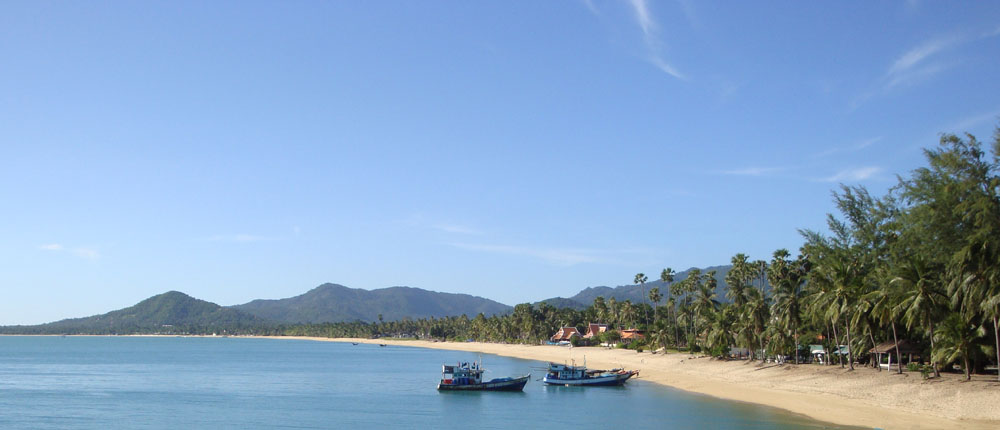-
Posts
12,522 -
Joined
-
Last visited
Content Type
Events
Forums
Downloads
Quizzes
Gallery
Blogs
Everything posted by khunPer
-
Not legally.
-
Because a glass of good wine taste far better than any cannabis. People enjoying a glass of wine, or two, with their dinner don't drink to get drunk or stoned. Furthermore, one or two glass on wine is healthy for elder people, smoking is not. Responsible people that enjoys beer, wine or a drink, don't walk right out being driver of a vehicle. Driving after taking cannabis, or taking any other kind of drugs, can also be dangerous... Why do people take cannabis?
-
Facebook often has local groups for selling and buying. In my area many foreigners post on English language and numerous musical instruments are traded.
-
You cannot "exchange" the blue house book, it follows the property. However, only Thai citizens – and foreigner's granted permanent residency – can be registered in a blue house book. Aliens can apply for registration in a "yellow house book for aliens", which is just a proof of registered address. The procedure for being registered in a yellow house book can be anything from easy to difficult in various places. It's the buyer's responsibility to do due diligence before closing a deal, like checking area for planned issues that might effect the property, often buyer's lawyer can do it for the buyer. I don't think you can gain anything from suing agent or previous owner, apart from a huge bill from the lawyer.
-

3 Things that will make your relationship successful in Thailand
khunPer replied to Celsius's topic in Marriage and Divorce
20 years – actually almost 21 – with same Thai girlfriend (and I've never been married, but had 3 longer time girlfriends in my home country; however, none on them lasted for 20 years, I'm not that old...😞 Number 1) She should not have a job, but full time for me; it has worked very well... Number 2) Fully agree...👍 No children from previous marriage or relationships. Number 3) Young enough to be of interest for me, and young enough to be able to take care of me, when I eventually might get old. 31 years – close to 32 – age difference has worked very well for me... Extra Number 4) If had 3 clauses, I wished to be understood and accepted: a) If you are looking for a rich man, forget me. b) I'm not rich, but can provide for my own little family, but I won't provide for an extended Thai family. c) Don't bring problems to me, I'm experienced enough to create plenty problem for my by myself. 😊 -

Are Older Men in Thailand Trading Love for Financial Ruin
khunPer replied to CharlieH's topic in ASEAN NOW Community Pub
If you are aware of that you are a provider – just like in old-fashioned Western marriages – and keep both feet solid on the ground and thinks before you act, so you do not feed a gold digger, a relationship or marriage with a Thai lady can work well and be win-win. There are ways to secure yourself – especially important financially – and if you use them and also set limits for what you can or will support, the gold diggers will depart, while the the "good" lady looking for long-term relationship and security will stay. A long lasting relationship are more than sex – and don't forget that some Thai ladies also accepts a mia noi or little giks – especially if you are an elder man and need someone younger to care for you when aging sets in. -

Illegal land occupation
khunPer replied to w94005m's topic in Real Estate, Housing, House and Land Ownership
Get the Land Office to measure the land and place new markers, so you know what is yours. All neighbours need to be present the day that the measuring is done. -
No – and they also check that you have not been double-charged by mistake, for example scanning same item twice...
-

Could do with some support and advice here ?
khunPer replied to The Cobra's topic in Marriage and Divorce
I've had friends saying the same, but my girlfriend always tells me that they shouldn't worry, a Thai lady can always find a solution. Seems like she is correct, because a number of her friends have split with their farang husband or boyfriend, and managed well. So, I think you shall not worry too much about that, you shall rather think about your own future in Thailand, and especially as you mention yourself, about when getting older. Having a younger spouse can be a benefit, as long as it works well, but... An elder fellow countryman began to become demented, resulting in that his younger wife threw him out; however, kindly supported him with a one way ticket back home. Despite he had paid for building a home – hers – now, he stood with his luggage somewhere up in Isaan, and a grown up daughter in his home-country, who was pleading in forums for someone to help him, to find his way down to Bangkok Airport. Luckily someone knew a taxi-service, and they would pick him up and make sure he got checked in and entered the departure area, being assisted for help to the gate. Yes, it's worth thinking about, what might happen when we become grumpy old men – or even worse – how shall we manage to live in Thailand... -

Down under or Thai? Aussie mum trades Oz for Land of Smiles
khunPer replied to webfact's topic in Thailand News
Double post deleted, didn't show when posting, so something wrong with the script. Edit/addition: It use to be in Opera that a posting don't show up, this is in Google's Chrome browser, which normally works. -

Down under or Thai? Aussie mum trades Oz for Land of Smiles
khunPer replied to webfact's topic in Thailand News
I presume from the article's text that they will own a house worth 27 million baht, when it's built and paperwork is made correctly. However, they won't own the land under their dream-house, so either a limited 30-year lease – which might be included in the 27 million – or ongoing rent of land with risk of termination. I know very well that money is a relative size, but 27 million is still some level of money in my modest view, even that it might be less than what a home costs in OZ, which they couldn't afford – I don't know home prices down there – it makes me think of: "Never invest more in Thailand than you can afford to lose"... -

Foreign couple loses 100,000 baht to Muay Thai trainer in Phuket
khunPer replied to webfact's topic in Phuket News
"Musilik stated that he and his wife were interested in the course because her visa was due to expire in seven months." -

Foreign tourist’s gold necklace stolen in Patong alley
khunPer replied to webfact's topic in Phuket News
Simple efficient solution: Don't wear gold chains, gold necklace and expensive wrist watches when heading out in bars and like, or in the nightlife... -
But how long time needs the 400k baht to have been in the bank account before applying for non-O domestically? Normally the funds shall be transferred from abroad, while existing bank deposits needs to be one year or more old, to my knowledge. In some areas the application can also be little difficult or strict. And I know of one immigration-office where they do not accept domestically non-O applications. I would recommend to apply from one's home country, whenever possible.
-

Bus Companies Lament Over Suspension of School Field Trips
khunPer replied to webfact's topic in Thailand News
Weather we like it or not, diesel vehicles are less likely to catch fire than gas, petrol and electric vehicles... -

Foreign couple loses 100,000 baht to Muay Thai trainer in Phuket
khunPer replied to webfact's topic in Phuket News
Pregnant and wanted one muay thai training for one year...- 20 replies
-
- 11
-

-

-

-

Ghosted: Spooked Chon Buri man blames ghost for KFC order
khunPer replied to snoop1130's topic in Pattaya News
👍 -

EEC housing market crashes: It’s a real estate shake-up
khunPer replied to webfact's topic in Thailand News
There is a reason why Srettha Tavisen focused so much on tourism, because that could be a fast way to recover foreign currency income from lost industries; it takes long time to get someone interested in building or opening a factory, and they often need a tax reduction as bait. The Shinawatra-cabinet seems to continue this solution, as the wage-promises don't fit into getting more low-skilled factory-work to the country, compared to wages in other areas of Southeast Asia. Factories in need of highly qualified workers, has many better options than Thailand. -

Proposal Needed for Legal Revisions to Foreign Land Leases
khunPer replied to webfact's topic in Thailand News
Most Thais would likely rather keep the land for family than a limited 99 years lease-income. With the freedom to renegotiate a lease after 30 years – which also can be for a new leaseholder – they can raise the price with for example inflation. If inflation is the preferred 2% annually, then they can almost, if not fully, double their lease prise; with 2% inflation prices will double in around 36 years. Furthermore, 30 years can be long time and progress can make both land and lease price raise more than inflation. -
Infra structure is a general problem for becoming a "World class turist destination" – especially if Thailand also wish quality tourists to be included – and garbage is an extremely visual thing that Western foreigners instantly notice and dislike.
-

Homeless Group Celebrates with 10,000 Baht Wallet Aid, Buys Alcohol
khunPer replied to webfact's topic in Bangkok News
That's what happens, when handing out cash instead of a card, where money only can be used for certain items. However, "always look on the bright side of life", some money comes back to the government from spirit-tax... -
You will need to be registered as house owner and host at the local "tessa ban" district office. You might also need to obtain a yellow house book for aliens, ask at the office if that is neccessary; the process can sometime be little complicated, depending on what the local office requests. When that is done, you can do the registration online for being the host, and thereafter the TM30-registration of yourself.
-
In the Thai law there is no difference between rent and lease. But in practise "leasing" means a longer fixed period than 3 years. When renting (leasing) for more than 3 years the agreement is registered on the title deed at a Land Office and tax shall be paid for the whole agreed period. It's illegal to agree periods over 3 years duration without registering. Some renter s won't make rental agreements for more than 3 years, both to avoid tax, but also for the freedom to raise the rent after the agreed period or sell their property without any registered obligations on the title deed, which obligations continues for a new owner. Often lease is agreed for 30 years, which is the maximum period. Any agreement of additional leasing period(s) is not registered and might be hard to lawfully enforce, if the lessor backs out, sells or die. You can find the law "Rent of property" in English translation HERE.
-

Is it safe to wear a Rolex around Bangkok??
khunPer replied to Mekmong MICK's topic in ASEAN NOW Community Pub
If me, I wouldn't do it, nor wear massive gold chains...



